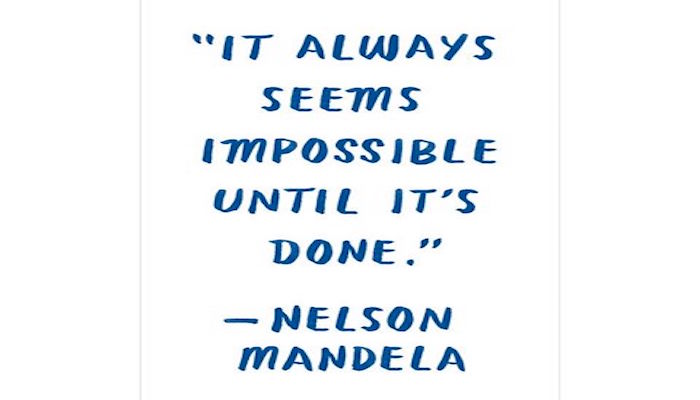Ramadan at Workplace (The Guardian 7/6/2016)

Majority of the 1.6 billion people, which is 23% of the world’s population will be observing 30 days of fasting and religious practices during the holy month of Ramadan. That is upto 17 hours of not eating or drinking every day throughout the daylight hours, from dawn to sunset for 30 days.
Although fasting Is usually the primary association with Ramadan, the month involves more exertion than refraining from food and water. Eating the first meal at sunset, extra prayers, late nights and heightened emphasis on virtue are all part of experiencing the holy month.
For most healthy adults – (barring those who are elderly, pregnant, breastfeeding, menstruating or diabetic) the side effect of fasting is simply hunger. For others, fasting can cause drops in blood sugar, sleepiness, lightheadedness, or trouble concentrating. It is particularly challenging for those working outdoors or in physically demanding jobs.
Workplaces need to be cognizant of special considerations to be extended to their employees who are fasting during this holy month and need to be aware of the personal and religious sensitivities. Understanding their experience and accommodating their particular needs shows good management and helps ensure people perform to the best of their abilities. Implementing policies that accommodate can only lead to nurturing mutual trust and ultimately lead to higher staff retention, better morale, more effective teams and greater productivity.
Key Workplace Considerations during Ramadan
- Observing Ramadan may be noticeable (for example not eating at lunchtime) so it is often sensible for employees to inform their managers of the fact that they are fasting
- Fasting may affect people in different ways (for example some people may understandably become a little irritated or slightly tired at times) and colleagues need to appreciate how this can translate into behavior and working practices.
- If shift work is the norm, look at any changes that can be made to offer those fasting, the opportunity to swap shifts or change working hours in a way that suits all parties.
- For those in 9 – 5 roles, consider flexi time options for start and finish times. See if allowances can be made for people to work lunch hours and breaks in return for an earlier finish
- Be understanding of those fasting that they may not feel comfortable sitting and watching others eat and drink
- If welcoming someone into your office for a meeting who you believe may be fasting, simply ask on arrival if they want a drink. If they decline you can be pretty sure that they are fasting and there is no need for you to keep offering them tea and biscuits
- Make special allowance for those fasting to take a break at sunset to break their fast if they happen to be still on shift. This needs to be sufficient time to break their fast, pray and then eat properly
- If you have a canteen, try and arrange for some meals to be saved for people fasting so that they are not left choice less at the end of the day
- The effects of fasting may be felt most strongly in the afternoon so it can help to use the morning for meetings and intellectually challenging work, and perform routine tasks later.
- Avoid booking meetings for the afternoon. If high concentration levels are needed from people, don’t expect this after lunchtime. Use the morning when people are still relatively fresh
- Although breaks should be kept, a shorter lunch may make it easier for an employee to manage their workload if they wish to take time off to carry out an additional prayer or worship
- Colleagues may want to avoid offer food and drink to those who fast if sharing food with other colleagues, or eating during meetings
- It would be helpful to avoid meeting / social events that ALL Staff must attend during Ramadan as many people would still be fasting
- Do not expect people to commit to evening functions. The evenings are dedicated to eating, prayers, and gathering within the family and wider community
- If fasting team members are working remotely, work out time differences and how their daily routine will impact you in terms of meetings, deadlines, SLAs etc.
- In certain years, a considerable portion of annual leave may be used by employees wishing to observe the Ramadan rules. Where the leave timings can be accommodated, it is also important to ensure an employee has adequate leave days available for these needs.
- Awareness and understanding of Ramadan and other religious festivals can be aided by posting information on staff noticeboards or newsletters as well as by providing a place for prayer and rest
- Try and use Ramadan as a platform for greater understanding and improving team dynamics. Why not throw an iftar one evening and allow people to share a part of their lives with colleagues?
We wish all our readers a healthy and happy and peaceful Ramadan
Reply back to bhakti@impactafya.com with your feedback and we welcome your suggestions for corporate wellness issues you’d like to see covered in our future columns.
Bhakti Shah, MPH is the Founder and Managing Director of ImpactAfya Ltd, collaborating with Workplace Options and Mayo Clinic, USA to provide Corporate Wellness and EAP Solutions in East Africa. Bhakti is also the Immediate Past President of the American Chamber of Commerce in Tanzania and the Vice Chair for Malaria and HIV/AIDS for Rotary District 9211.
